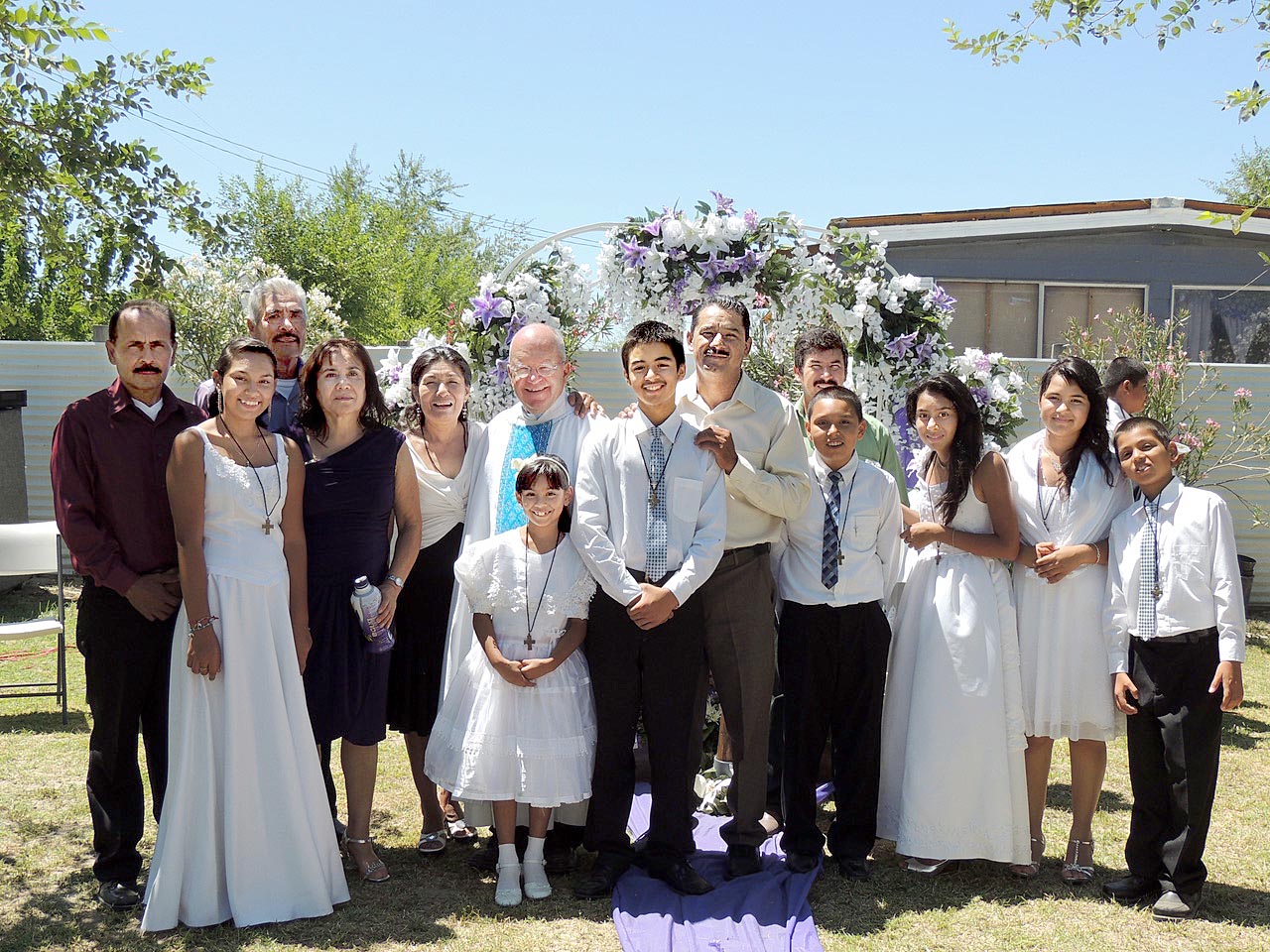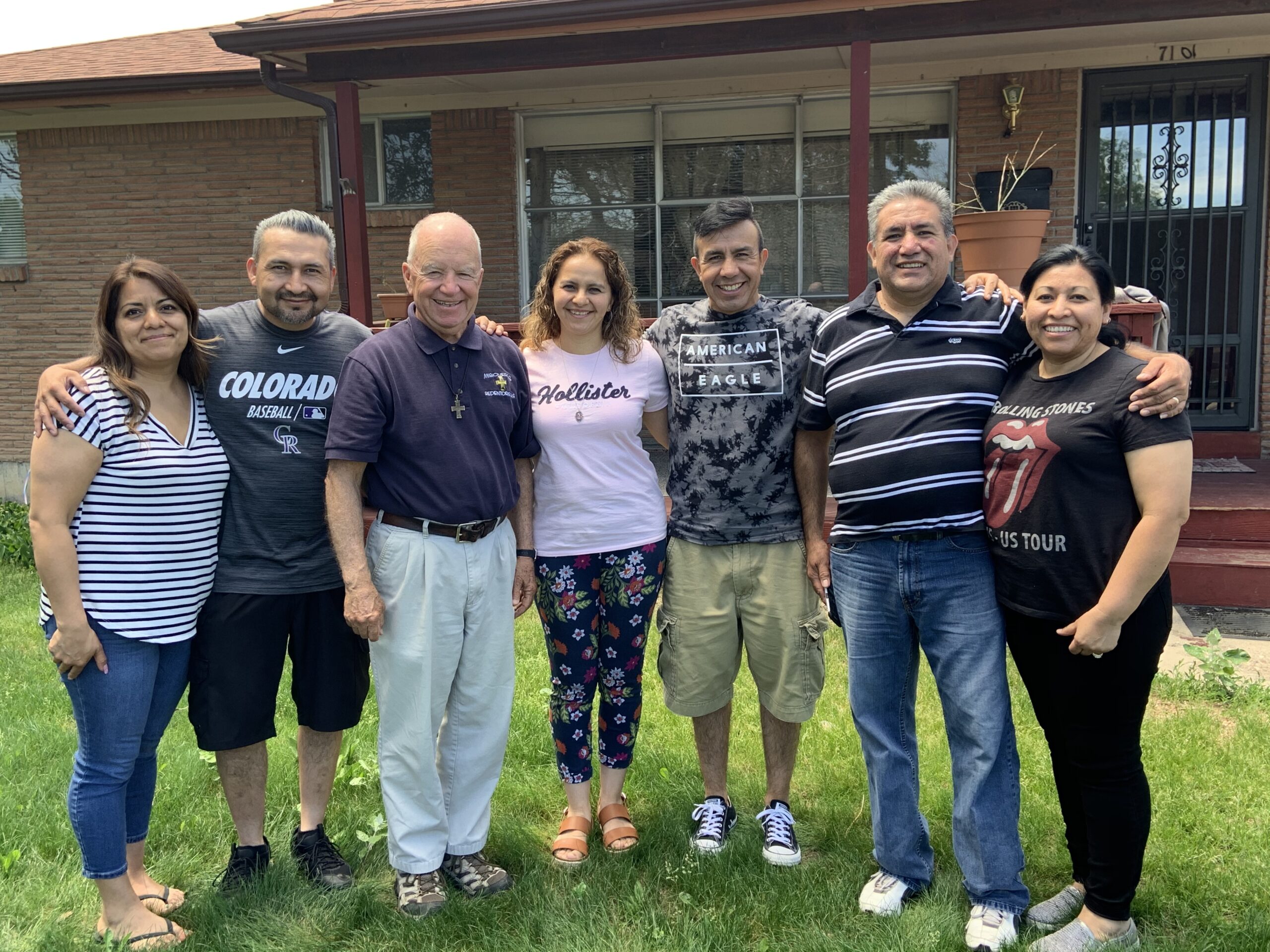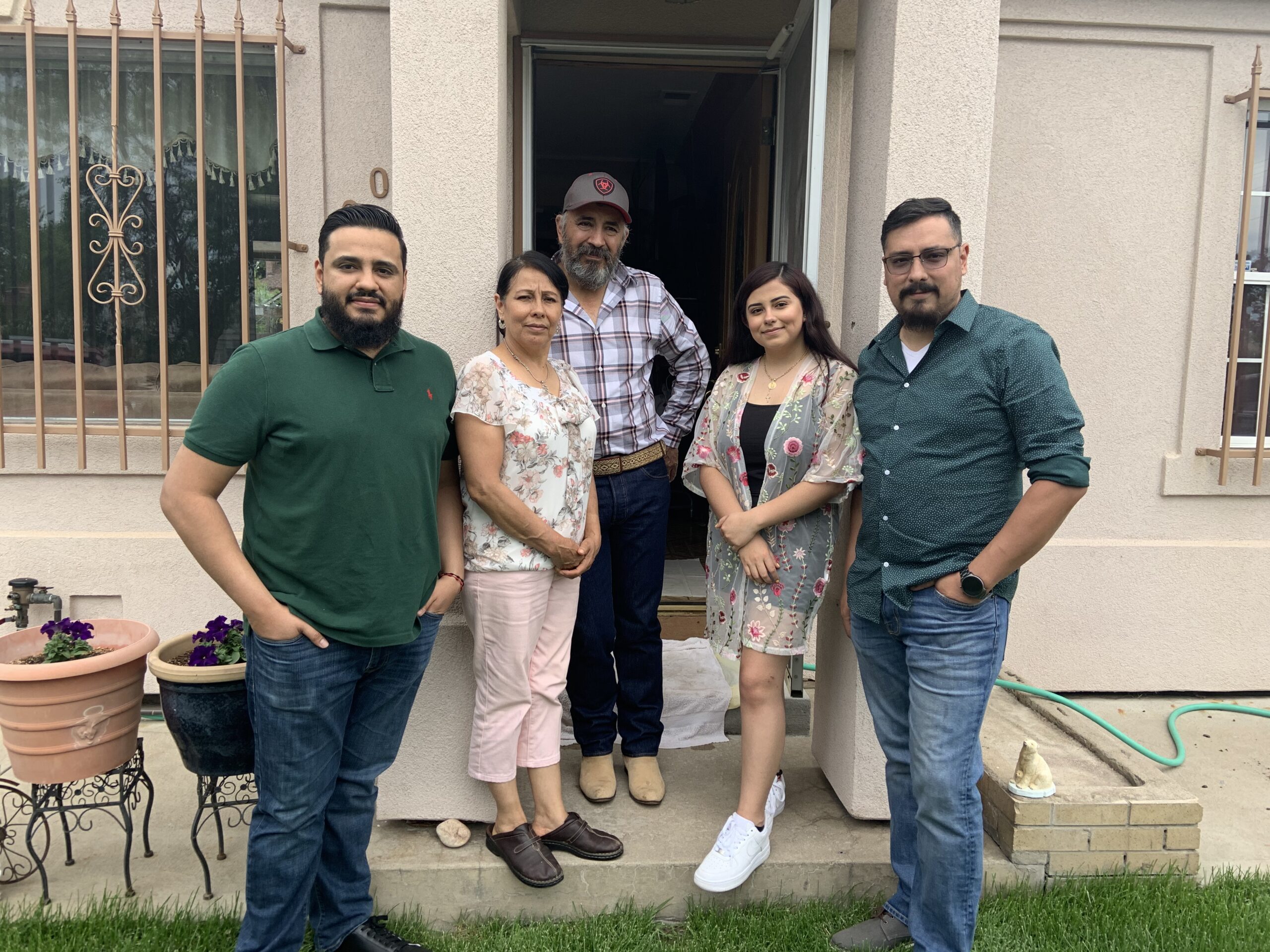Migrant Stories / Historias de Migrantes
Seeking Feedback
To make comments on a blog, please respond to “Leave a Reply” on the page. The comment will not be made public. To send the comment, one needs to fill in the name and email address. Do not worry about request for a website. I will respond to reflections offered on the blog posts.
Quiero comentarios
Para hacer comentarios en un blog, responda a “Leave a Reply” en la página. El comentario no se hará público. Para enviar el comentario, es necesario completar el nombre y la dirección de correo electrónico. No importa si tiene o no tiene sitio de web. Responderé a las reflexiones ofrecidas en las publicaciones del blog.
First Communion for Seven Children of Migrants
For thirteen summers I ran summer First Communion programs for migrant farm worker children in Oregon and California. Each year several Redemptorist seminarians and lay volunteers accompanied me in orchards, vineyards, dairies and isolated communities, providing access to sacraments for children of migrants. In the summer of 2012, our Redemptorist summer migrant mission team celebrated First Eucharist with fifty-one children and teenagers in Allensworth, California. The classes were for ten evenings with classes for the children and for the parents. This year was exceptional with almost perfect attendance of not only the children but also the parents.
Each year three or four families leave lasting impressions on the mission teams. One family touched us in a special way. This family ministered to us more than we ministered to them.
A Migrant family’s Journey of Faith
Pompeyo and Elia have been married for thirty-eight years. They have two sons and ten grandchildren. In 1999, they came as a family to work in the U.S. Pompeyo, Elia, the two sons and their wives, and two infants arrived in Arizona looking for work in whatever opportunity they could find. In the first twelve years in the U.S., their search for work took them to nine states: Arizona, California, Texas, South Dakota, Kansas, Georgia, Nevada, Maryland and Mississippi. They moved over fifteen times ending up back in California in 2009. Eight more children were born to the two sons. They always stayed together as a family in their journey.
As with many Catholics, there was a time when Pompeyo and Elia found their practice of the faith lacking and inconsistent. They wished that they had been better examples for their children, but they grew into more consistent practice of their faith as their children grew into adulthood. All ten grandchildren were baptized, but only the oldest received her First Eucharist. Mobility, poverty and heartache were among the reasons that none of the others received First Eucharist.
In 2009, the family experienced the first of several life changing challenges The wife of the older son died suddenly leaving him with five children from two to fourteen years old. The grandparents took on more responsibility. Then in 2010, the other son and his wife were taken in a workplace immigration raid and were deported, leaving the grandparents with their five children. In April of 2011, the widower son was also deported.
Hardship brought the family to a deeper bond with each other and a desire to be closer to God. Pompeyo and Elia taught their grandchildren values, courtesy and discipline. They offered stability to children who had lost one mother to death and their other parents to deportation. Pompeyo, Elia and their sons struggled with what was best for the children. The parents wanted their children with them, but feared that they could not take care of them in Mexico. In all of this, the grandparents presented stability, love and strength to the children.
Disillusionment with the Church
In all the movement, the children lacked the opportunity to receive their First Eucharist because they were not in one place long enough to complete any catechetical program. In their last move, Pompeyo and Elia were told that the children needed to be in a two-year program and no exception could be made. They were saddened as they were discerning whether to go to Mexico to reunite the family or continue to struggle to make a home in the U.S. They were discouraged with religious leaders and priests for not working with them to make sure that the children received the sacraments.
Pompeyo and Elia heard about campesino programs in other communities that offered programs more in sync with the lives of farm workers, but those programs were not in the area where they lived. They heard of a missionary who had a team of seminarians and lay people who offered a summer school for children, but they had no idea where or who to contact. Pompeyo said, “I assumed it was just a myth.” Then, at a prayer meeting they heard that a missionary was starting a program thirteen miles from where they lived and the next day was registration day. They registered seven children from eight to sixteen years of age.
Uncomfortable Moment in the Classes
The first day of classes there were forty children. Eight more came into the class the next two days. On the fourth evening, two mothers came asking that their three children enter the class. I balked and told them that since they were from a town, not living on farms and that it was the fourth night, we could take no more into the classes. I was uncomfortable watching the women leave. I told the class that I needed to speak with the two mothers. Pompeyo said, “It was like he left the ninety-nine…” A few minutes later we welcomed them to the group and sent the children to join in the classes. Pompeyo said, “I saw you struggle with what to do, and you did the right thing.”
Placing Confidence in God
On July 1, fifty-one children received their First Eucharist. Several parents had begun preparation to regularize their marriages. All the families brought food for a potluck celebration after the Mass. Several had celebrations with their families in the afternoon and evening. The mission team went to several celebrations, but it was very special with the seven grandchildren. The joy of seven children and their siblings was obvious. Two of the children showed off their accomplishments from school as they took first and second place in public speaking competition for migrant education students in the state of California. One took first place and the cousin took second place for seventh graders. The best laugh came when the children told the one who took first place to not forget that she is the dumb one in the family. She got a “B” on her report card. The others had straight “A’s”.
On Friday after the First Communions, Pompeyo, Elia and the ten children went to Mexico to be reunited as a family with the parents of the children. Pompeyo said that for a time they thought of only sending the children, but the children said, “You can’t leave us”. For a moment they considered him staying to send money home, but Pompeyo told me, “Father, in thirty-eight years we have never been separated. Now is not a time to start.”
Never underestimate a family of faith. This is only the story of one of the migrant families I have had the privilege of knowing. These are people on the margins of society that need our attention.
(Tomorrow: A child’s request)
La Primera Comunión de siete hijos de unos migrantes
Por trece veranos presenté programas para la Primera Comunión de niños de trabajadores agrícolas migrantes en Oregón y California. Cada año, varios seminaristas Redentoristas y voluntarios laicos me acompañaron en las huertas, viñedos, lecherías y comunidades aisladas, facilitando el acceso a los sacramentos para los hijos de los migrantes. En el verano del 2012, nuestro equipo Redentorista de la misión de verano ofreció clases para la Primera Comunión para cincuenta y un niños y adolescentes en Allensworth, California. Las clases eran por diez noches con clases para los niños y para los padres. Este año fue excepcional, con asistencia casi perfecta no sólo de los niños sino también de los padres.
Cada año, tres o cuatro familias dejan una impresión duradera en los equipos misioneros. Una familia nos conmovió de una manera especial. Esta familia nos evangelizo más que nosotros a ellos.
El camino de fe para una familia migrante
Pompeyo y Elia estuvieron casados por treinta y ocho años. Tienen dos hijos y diez nietos. En 1999, todos se vinieron para trabajar a los Estados Unidos. Pompeyo, Elia, los dos hijos y sus esposas y dos niños llegaron a Arizona en busca de trabajo en cualquier oportunidad que pudieran encontrar. En los primeros doce años en los Estados Unidos, su búsqueda de trabajo los llevó a nueve estados: Arizona, California, Texas, South Dakota, Kansas, Georgia, Nevada, Maryland y Mississippi. Se mudaron más de quince veces y finalmente llegaron a California en el 2009. Los dos hijos tuvieron otros ocho niños. La familia nunca se separó en toda su jornada siguiendo el trabajo.
Al igual que muchos católicos, hubo un tiempo en que Pompeyo y Elia eran carentes e inconsistentes en la práctica de la fe. Ellos deseaban haber sido mejores ejemplos cuando sus hijos eran pequeños, pero la práctica de su fe se hizo más consistente cuando sus hijos llegaron a la edad adulta. Los diez nietos fueron bautizados, pero sólo la más grande recibió su Primera Comunión. Ninguno de los otros nietos recibió la Primera Comunión por motivos de movilidad, pobreza y angustia.
En el 2009, la familia experimentó el primero de varios desafíos que cambiarían sus vidas. La esposa del hijo mayor murió de repente dejándolo con cinco niños de dos a catorce años. Los abuelos asumieron más responsabilidad. Luego en el 2010, en una redada de inmigración en el lugar de trabajo, las autoridades arrestaron y deportaron al otro hijo y a su esposa, dejando a los abuelos con sus cinco hijos. En abril del 2011, las autoridades deportaron también al hijo viudo.
La adversidad llevó a la familia a un vínculo más profundo y surgió en ellos el deseo de estar más cerca de Dios. Pompeyo y Elia les enseñaron a sus nietos valores como la cortesía y la disciplina. Los abuelos les ofrecieron estabilidad a los niños que habían perdido a su madre a la muerte y a los otros padres que habían sido deportados. Pompeyo, Elia y sus hijos consideraron lo que era mejor para los niños. Los padres querían que sus hijos estuvieran con ellos, pero temían no poder cuidar de ellos en México. A pesar de todo, los abuelos les brindaron a los nietos estabilidad, amor y fortaleza.
La desilusión con la Iglesia
Los niños no tuvieron la oportunidad de recibir la Primera Comunión porque la familia no permanecía en un lugar el tiempo suficiente para completar un programa catequético. En el lugar anterior donde vivieron, las personas encargadas de la catequesis les informaron que los niños necesitaban estar en un programa de dos años y que no se podía hacer una excepción. Pompeyo y Elia sentían tristeza al contemplar si irse a México para reunir a la familia o continuar luchando para establecer su hogar en los Estados Unidos. Estaban desilusionados con los líderes religiosos y sacerdotes que no cooperaban con ellos para asegurar que los niños recibieran los sacramentos.
Pompeyo y Elia oyeron de programas para campesinos en otras comunidades que ofrecían programas más de acuerdo con las vidas de los trabajadores agrícolas, pero esos programas no estaban en la zona donde vivían. Oyeron hablar de un misionero que tenía un equipo de seminaristas y laicos que ofrecían clases de verano para los niños, pero no tenían idea de dónde o con quién comunicarse. Pompeyo dijo: “Yo pensé que era sólo un mito”. Entonces, en un grupo de oración, se enteraron de que había un misionero empezando un programa de la Primera Comunión a unas trece millas de donde vivían y que al día siguiente eran las inscripciones. Pompeyo y Elia inscribieron a siete niños de ocho a dieciséis años.
Momento incómodo en las clases
El primer día de clases había cuarenta niños. Otros ocho niños ingresaron a la clase los siguientes dos días. En la cuarta noche, dos madres pidieron que sus tres niños ingresaran a la clase. Me opuse y les dije que como eran de una ciudad, que no vivían en el campo y que era la cuarta noche, no podíamos aceptar más niños en las clases. Me sentí incómodo al ver a las mujeres alejarse. Le avisé a la clase que tenía que hablar con las dos madres. Pompeyo dijo: “Fue como si él hubiera dejado a las noventa y nueve …” Unos minutos después, les dimos la bienvenida a las dos mujeres al grupo y enviamos a los niños a participar en las clases. Pompeyo dijo: “Lo vi luchar con lo que debía hacer, y usted hizo lo correcto.”
Confiar en Dios
El primero de julio, cincuenta y uno niños recibieron su Primera Comunión. Varios padres habían empezado a prepararse para casarse por la Iglesia. Todas las familias trajeron comida para una celebración después de la misa. Varios tuvieron fiestas con sus familias en la tarde y en la noche. El equipo de la misión fue a varias fiestas, pero la fiesta de los siete nietos de Pompeyo y Elia fue muy especial. La alegría de los siete niños y sus hermanos era evidente. Dos de los niños presumieron sus logros de la escuela pues habían ganado el primero y segundo lugar en la competencia de oratoria para estudiantes de educación migrante en el estado de California. Una obtuvo el primer lugar y su prima obtuvo el segundo lugar para estudiantes de séptimo grado. Lo que causó más risa fue cuando los niños le dijeron a la que obtuvo el primer lugar: “No olvides que eres la más tonta de la familia”. Ella había sacado una “B” en sus calificaciones de la escuela; los otros habían sacado “A” en todas sus calificaciones.
El viernes después de las Primeras Comuniones, Pompeyo, Elia y los diez nietos fueron a México para reunirse en familia con los padres de los niños. Pompeyo dijo que durante mucho tiempo habían pensado enviar sólo a los niños, pero los niños les dijeron: “Ustedes no nos pueden dejar”. Por un momento consideraron que Pompeyo se podría quedar en los Estados Unidos para enviar dinero, pero él me dijo: “Padre, en treinta y ocho años nunca hemos estado separados. Ahora no es el momento para empezar”.
Nunca subestime a una familia de fe. Ésta es sólo la historia de una de las familias migrantes que he tenido el privilegio de conocer. Son personas al margen de la sociedad que necesitan nuestra atención.
(Mañana: La petición de un niño)





